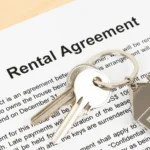How to Handle Lease Agreements to Ensure Compliance?
Navigating the complexities of lease agreements is crucial for ensuring compliance and fostering a harmonious landlord-tenant relationship. At the heart of every rental transaction lies the lease agreement, a binding document that outlines the responsibilities and rights of both parties. Understanding the basic components, including legal requirements and standard clauses, is the first step toward creating a solid foundation.
Tailoring these agreements to align with Missouri’s local laws and regulations, especially in areas like Creve Coeur, Kirkwood, and Wentzville, is not only a legal necessity but a practice that can significantly reduce future headaches.

Understanding Lease Agreements: The Foundation of Property Management
Lease agreements are the cornerstone of any successful property management operation, serving as the legal and functional framework that governs the relationship between property owners and tenants. For property managers overseeing rentals from Eureka to Florissant, and everywhere in between, staying abreast of the latest in property law and regulations is critical. Here are some strategies and tips to ensure your lease agreements are not only compliant but also contribute to a smooth property management experience.
Stay Updated on Changes in Property Law and Regulations
The landscape of property law is ever-evolving, with changes that can impact properties across Missouri, from urban centers like St. Louis to suburban areas such as Maryland Heights and Mehlville. Property managers should:
- Subscribe to Legal Updates: Join mailing lists of reputable legal firms or property management associations that specialize in real estate law. These resources often provide updates on legislation changes and insightful commentary.
- Attend Workshops and Seminars: Regularly attending industry workshops and seminars is invaluable. These events are not only educational but also offer networking opportunities with legal experts and fellow property managers.
- Utilize Legal Counsel: Establish a relationship with a legal advisor who specializes in real estate. They can provide tailored advice and ensure your lease agreements are up-to-date with current laws and regulations.
Conduct Thorough Tenant Screenings
Tenant screenings are a critical step in ensuring that occupants are reliable and compliant, minimizing potential legal and financial issues down the line. For properties in O’Fallon, Maryland Heights, and beyond:
- Implement a Comprehensive Screening Process: This should include credit checks, criminal background checks, employment verification, and previous property owner references.
- Stay Consistent and Fair: Apply the same screening criteria to all applicants to avoid accusations of discrimination. This practice is not only ethical but also compliant with the Fair Housing Act.
- Use Technology: Leverage online platforms and software designed for tenant screening. These tools can streamline the process, ensuring it’s thorough and efficient.
Highlight the Importance of Regular Property Inspections and Maintenance
Regular property inspections and maintenance are pivotal in upholding lease standards and ensuring tenant satisfaction. This is particularly true in communities such as Richmond Heights, Sappington, and Sunset Hills, where expectations for property conditions can be high.
- Schedule Regular Inspections: Conduct periodic inspections with proper notice to tenants. This helps in identifying maintenance issues before they become major problems.
- Create a Maintenance Checklist: A checklist for both inspections and regular maintenance ensures that all aspects of the property are reviewed and maintained.
- Foster Open Communication with Tenants: Encourage tenants to report issues as soon as they arise. Prompt attention to repairs can prevent larger issues and helps in maintaining a positive property owner-tenant relationship.
By understanding and implementing these strategies, property managers can ensure their lease agreements are solid, up-to-date, and enforceable. This foundation is essential for managing properties effectively and fostering positive relationships with tenants across Missouri, from the bustling streets of St. Louis to the quiet neighborhoods of Sunset Hills.
Key Strategies for Ensuring Lease Compliance
Lease agreements are the backbone of property management, serving as a binding contract between the property owner and tenant. However, ensuring compliance with these agreements can sometimes be challenging. Property managers often face issues such as non-payment of rent, unauthorized occupants, and property damage. These challenges necessitate effective strategies to maintain compliance and protect the property owner’s interests.
Addressing Common Challenges
The first step in ensuring lease compliance is understanding the common challenges property managers face. Non-payment of rent is a frequent issue, particularly in economic downturns or when tenants face unexpected financial difficulties. Unauthorized occupants can also pose significant challenges, potentially violating lease terms and local occupancy laws. Property damage, whether intentional or due to negligence, can lead to costly repairs and disputes over responsibility.
To address these challenges, property managers need to be vigilant and proactive. Regular property inspections can help identify unauthorized occupants or property damage early. Establishing a clear and open line of communication with tenants can also prevent many issues before they escalate. For instance, if a tenant is experiencing financial hardship, a discussion may lead to a payment plan that avoids the need for eviction.
Legal and Effective Handling of Lease Violations
When lease violations do occur, handling them legally and effectively is paramount. This begins with a thorough understanding of Missouri’s property owner-tenant laws, which provide the framework for addressing violations. For example, if a tenant fails to pay rent, Missouri law requires property owners to provide a notice and a grace period before proceeding with eviction. Similarly, dealing with unauthorized occupants or significant property damage may require specific legal notices and actions.
Property managers should document all interactions and violations meticulously. This documentation can be invaluable if disputes arise or if legal action becomes necessary. It’s also beneficial to have a standardized process for addressing violations, including issuing notices, conducting meetings, and, if necessary, initiating eviction proceedings.
The Importance of Clear Communication and Professional Advice
Clear communication is crucial in maintaining lease compliance. Lease agreements should be explicit about the tenant’s responsibilities, including rent payment schedules, rules regarding occupants, and property maintenance expectations. Regular communication can also help in identifying potential issues early and working collaboratively toward a resolution.
Despite the best efforts of property managers, complex disputes may sometimes require professional legal consultation. Consulting with an attorney who specializes in property owner-tenant law can ensure that actions taken are within legal bounds and minimize the risk of costly legal battles. Legal professionals can also provide guidance on drafting lease agreements that are comprehensive, fair, and compliant with Missouri law.
Navigating Challenges in Lease Enforcement
Lease enforcement is a critical aspect of property management that requires a delicate balance between firmness and flexibility. Property managers and property owners must navigate through various challenges to ensure compliance without straining the relationship with their tenants. Understanding the common hurdles in lease enforcement and adopting effective strategies can significantly ease this process.
- Understanding tenant rights and local laws
- Communication and documentation
- Addressing non-compliance proactively
- Offering solutions and flexibility
- Utilizing technology
- Seeking professional assistance
Final Thoughts
Handling lease agreements with diligence and attention to compliance is paramount for property management success. Avenue Residential Leasing & Management, serving areas from Chesterfield to Lake St. Louis in MO, emphasizes the importance of a thorough understanding of local and federal laws, including the Fair Housing Act, to protect both property owners and tenants.
Implementing clear, detailed lease agreements, conducting regular legal reviews, and maintaining open communication channels are essential steps in ensuring compliance. By adhering to these practices, property managers can foster positive property owner-tenant relationships, minimize legal risks, and contribute to a stable, respectful rental environment. Trust Avenue Residential Leasing & Management to guide you through compliant lease management practices.






